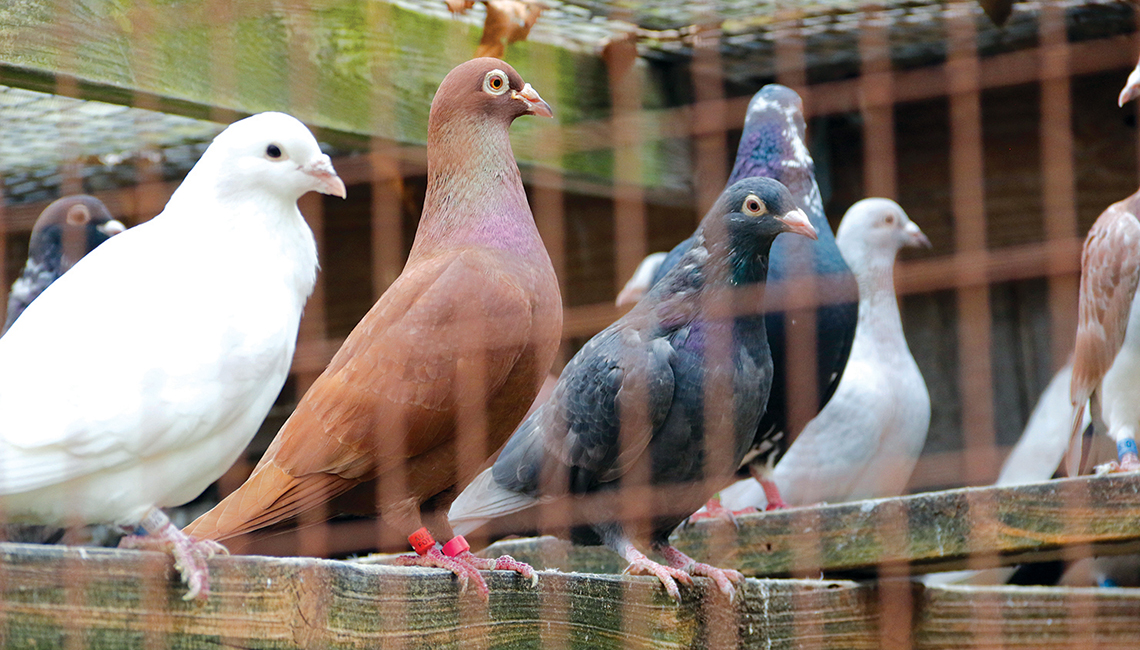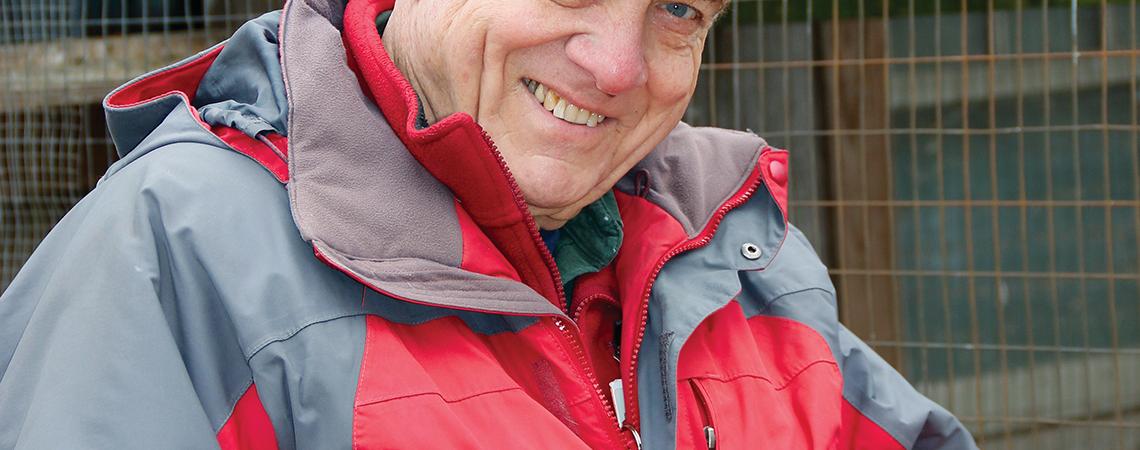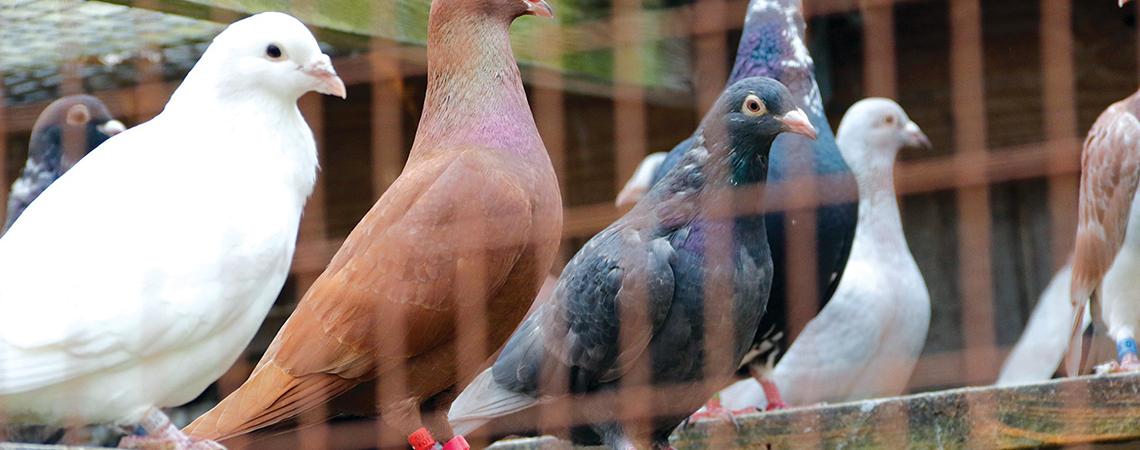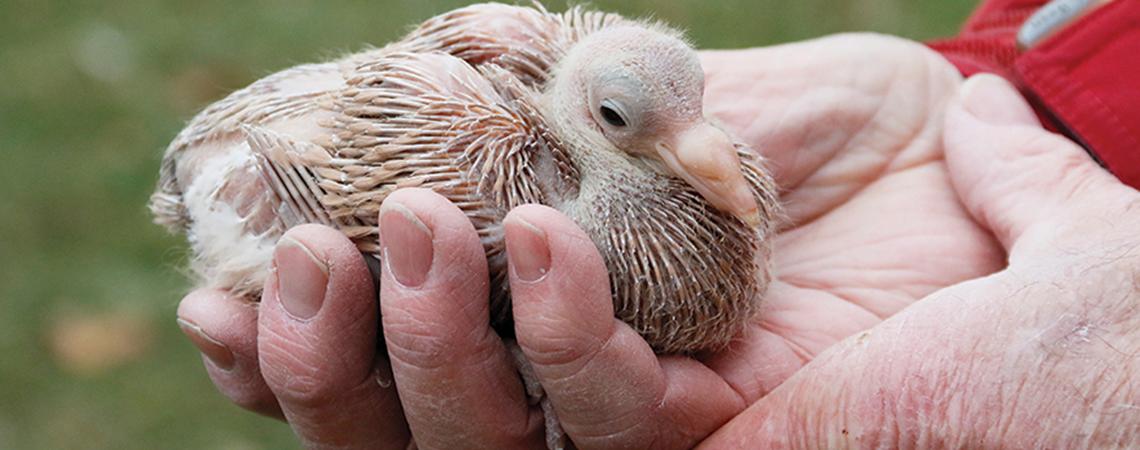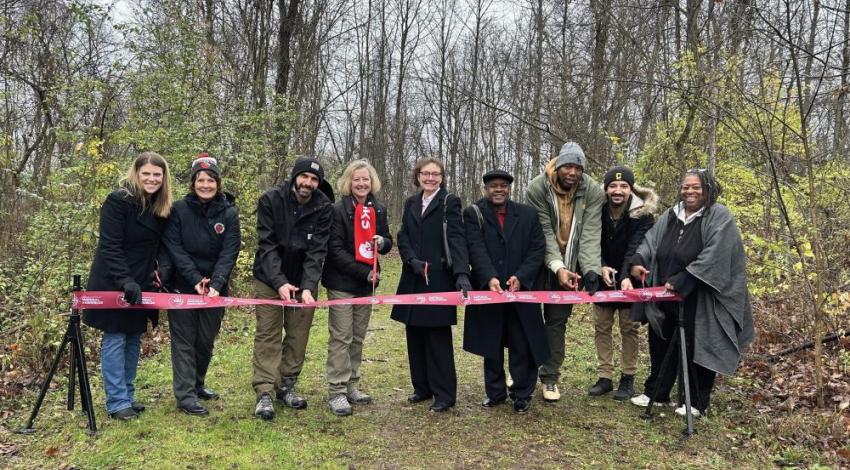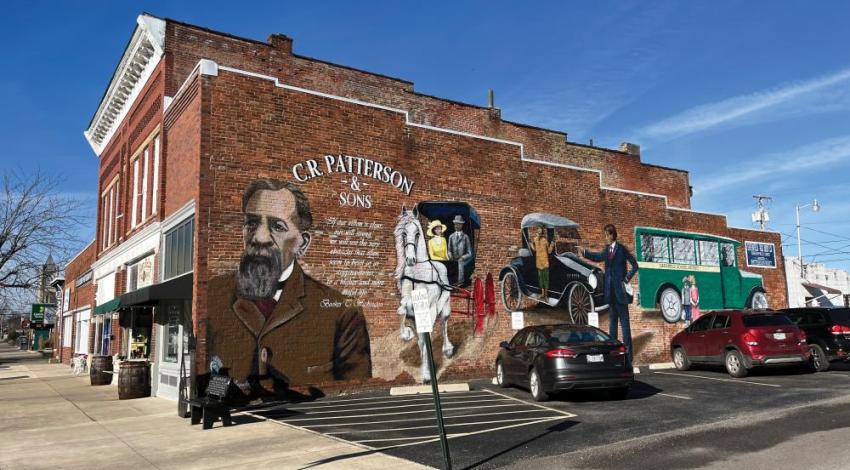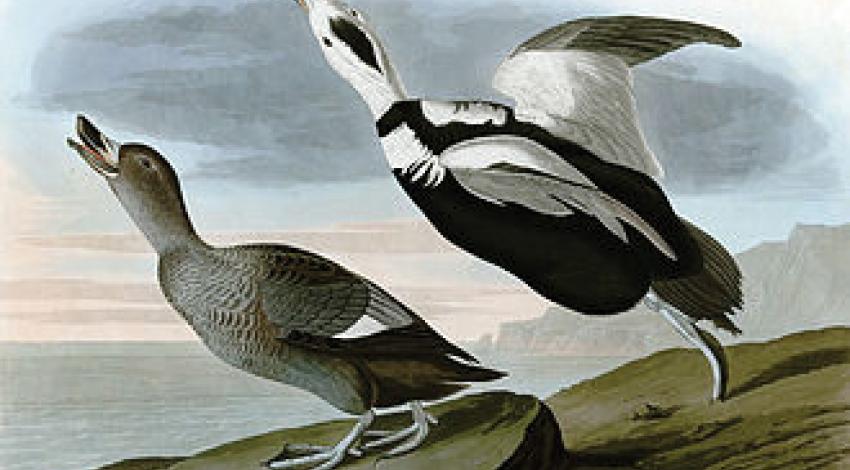Most men, believing ourselves invincible at one time or another in our lives, can think back to boyhood and remember doing at least one thing so incredibly dangerous that we were lucky to survive. Consolidated Cooperative member Guy Denny is no exception.
Raised in a rural area just south of Toledo, Denny would often fish the nearby Maumee River as a boy. It’s there he noticed pigeons coming to roost each evening under the Interstate-80 Ohio Turnpike bridge that crosses the river. Wanting to capture some of those pigeons to raise, Denny decided on a plan.
Consolidated Cooperative member Guy Denny
After dark one night, he and a young buddy climbed out on the massive, metal I-beams that support the bridge. There, beneath the bridge, with cars whizzing past just a few feet overheard, his buddy shined a flashlight beam into the eyes of the mesmerized pigeons while Denny grabbed them one by one and shoved the birds into a burlap bag. The boys’ poke was nearly full when Denny reached for one last bird — a beautiful, nearly pure-white pigeon — and promptly lost his footing on the bridge.
“I fell about the height of a six-story building, hitting the water in a sitting position with the bag of birds under me,” Denny recalls. “It’s those pigeons that likely saved my life, as they helped break my fall. I was so stunned that it was all I could do to slowly swim the short distance to shore on my back. I dumped the dozen birds out of the sack and they were all dead, drowned. I’ve regretted causing the death of those pigeons ever since, even though it nearly cost me my life.”
Deciding on a supposedly safer strategy, Denny and his buddy next rode a bus into downtown Toledo, where they roamed the back alleys in search of young pigeons that had fallen out of nests. “Looking back on it now,” he says, “those were terrible places where we could have been mugged or worse. But at the time we had no idea of the dangers — we just wanted pigeons.”
Denny eventually obtained a few of the birds he so craved, but that only created other issues. “Our neighbor hated pigeons, especially when one of my birds got into her house by flying down the chimney,” he says. “When my parents finally had had enough, my father suggested that we take the birds along on a visit to my grandparents’ house in Canton, about a three-hour drive away. We’d release the pigeons there and see if they would return home. I’m sure my dad was hoping we’d never see the pigeons again. All six birds arrived home before we did.”
What ultimately separated Denny from his first pigeons were his teenage years. “By then, I was becoming more interested in chasing girls than pigeons,” he chuckles.
But sometime around middle age, Denny’s fascination with the birds returned, and he has had a coopful ever since. He doesn’t race them, as many folks do; he simply enjoys watching them fly, marveling at the iridescent colors that are produced by breeding various types of birds.
According to Denny, the ancient Egyptians were the first to learn that pigeons would return to where they are kept — in other words, “home” — thus the term “homing pigeon.” Through the centuries, armies took advantage of this behavior by having pigeons carry written messages attached to their legs. The U.S. military maintained a pigeon corps during both world wars.
Denny says pigeon breeding and racing remains popular today worldwide, and a breeder can win a considerable amount of money for a very fast bird. “Several years ago, one particular racing pigeon sold for around a million dollars,” he says.
Denny says that racing homers have a fleshy ring around their eye, known as a cere. “Other pigeons don’t have the cere, so that’s one way of telling a racing homer from a common wild pigeon, known as a rock dove, should you ever come across one.”
Have an interest in pigeons?
As he grows older, Denny has become increasingly concerned about who would take care of his pigeons should he become ill or otherwise unable to care for the birds himself. As a result, he’s considering giving his remaining pigeons away to a young person who might be interested in getting started in the pastime. If you know a responsible boy or girl who might be interested, send an email to Chip and put “Pigeons” in the subject line. Your email will be forwarded to Guy Denny for reply.
“It would be a whole lot safer than attempting to capture pigeons from under a highway bridge,” Denny laughs.
